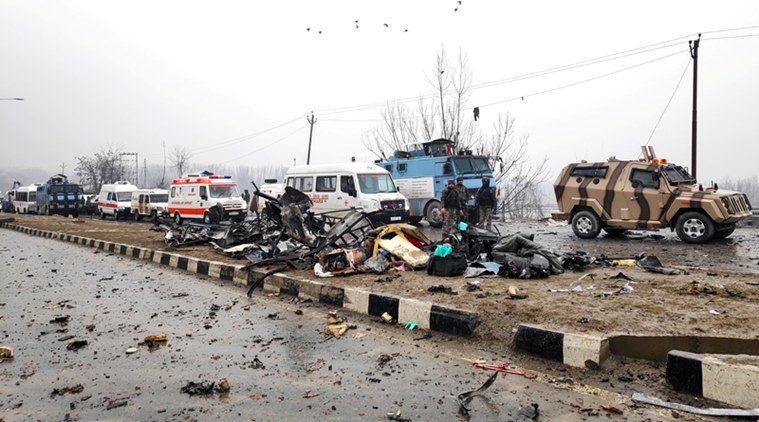Pulwama strike mirrors changes in the dynamic in Kashmir, Pakistan and the region
Pulwama tragedy signals a significant escalation in terrorism in the Kashmir Valley. Given the type, target and the scale of the attack, it seems obvious that this was done at the behest of Pakistan’s Inter Services Intelligence (ISI).

There are three dimensions to the suicide attack by Masood Azhar’s Jaish-e-Mohammad (JeM) in Pulwama on February 14 that led to the tragic deaths of at least 40 CRPF jawans.
The first dimension is Kashmir related. The Pulwama tragedy signals a significant escalation in terrorism in the Kashmir Valley. Given the type (Vehicle-Borne Improvised Explosive Device-VBIED), target and the scale of the attack, it seems obvious that this was done at the behest of Pakistan’s Inter Services Intelligence (ISI). The motivation would have been to refocus attention on the Valley after a spate of successes by the Indian security forces in neutralising terrorists, to provide a higher degree of visibility to the JeM, and to show the attack as being carried out by a local Kashmiri. However, it is obvious that while a local Kashmiri youth was the trigger, he was merely cannon fodder. The sourcing of material, training and planning was the handiwork of Pakistanis. The moot point, however, is whether this attack is a reversion to the 1990s pattern of terrorism involving the Pakistanis in pole positions and Kashmiris in sacrificial roles. While time will tell, the security forces in Kashmir will have to factor in this modus operandi and devise counter-measures.
The second dimension is Pakistan-related and has two sub-dimensions. First, it announces the arrival of Lt General Asim Munir, the new DG ISI, on the Pak-sponsored terror firmament. Munir was promoted to being a three-star general in September 2018 and given charge of the ISI in October 2018. Among his previous appointments were Director General Military Intelligence (DG MI) and Force Commander Northern Areas (FCNA). The latter, especially, would have given him familiarity with J&K and the infiltration of terrorists into India facilitated by the troops under his command. The Pulwama attack is possibly Munir cutting his teeth in terrorist operations and showing his boss, the army chief, General Qamar Javed Bajwa, that despite his lack of seniority, he is indeed one of the “boys” when it comes to India.
Second, it is now emerging that Bajwa, who completes his three-year tenure as army chief in November, is interested in an extension. Signals of this are apparent in the sycophantic articles that have started appearing in the Pakistan media. Below, for example, are just three excerpts from one such article published in The Daily Times on February 4:
“A leader of a different kind, Pakistan’s Chief of Army Staff (COAS) General Qamar Javed Bajwa is instrumental in strengthening the national power in the domain of security, economy and foreign policy presiding over a paradigm shift from a national security state to a development oriented, confident nation and society.”
“Starting with foreign policy, Bajwa has become the most relevant military leader ever produced in this part of the world.”










.png)




























No hay comentarios:
Publicar un comentario